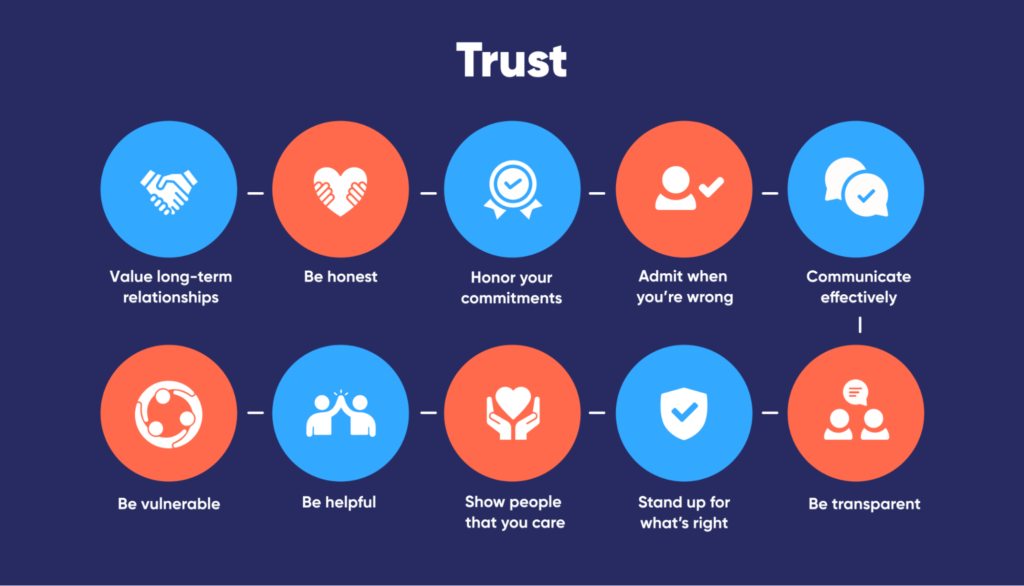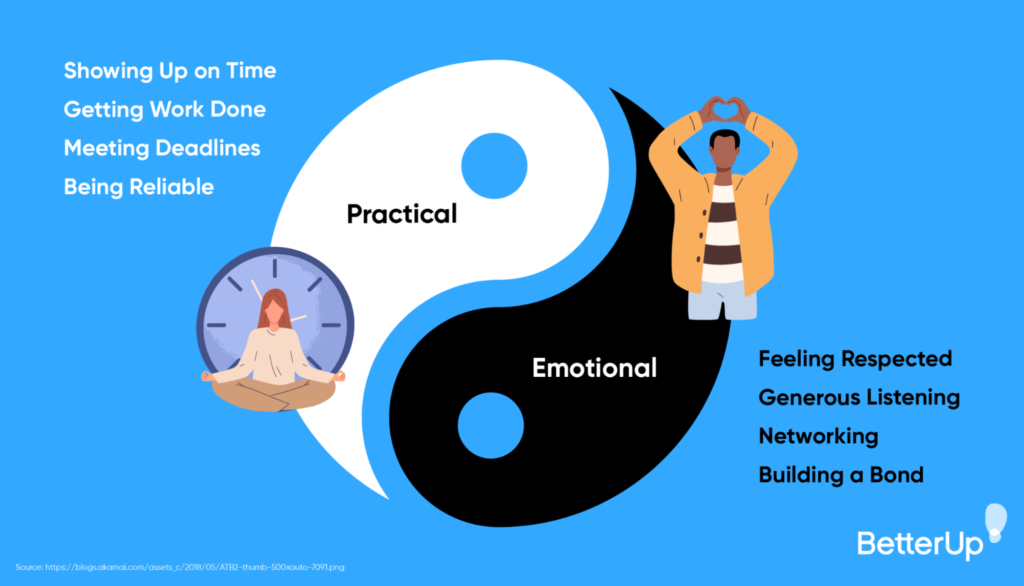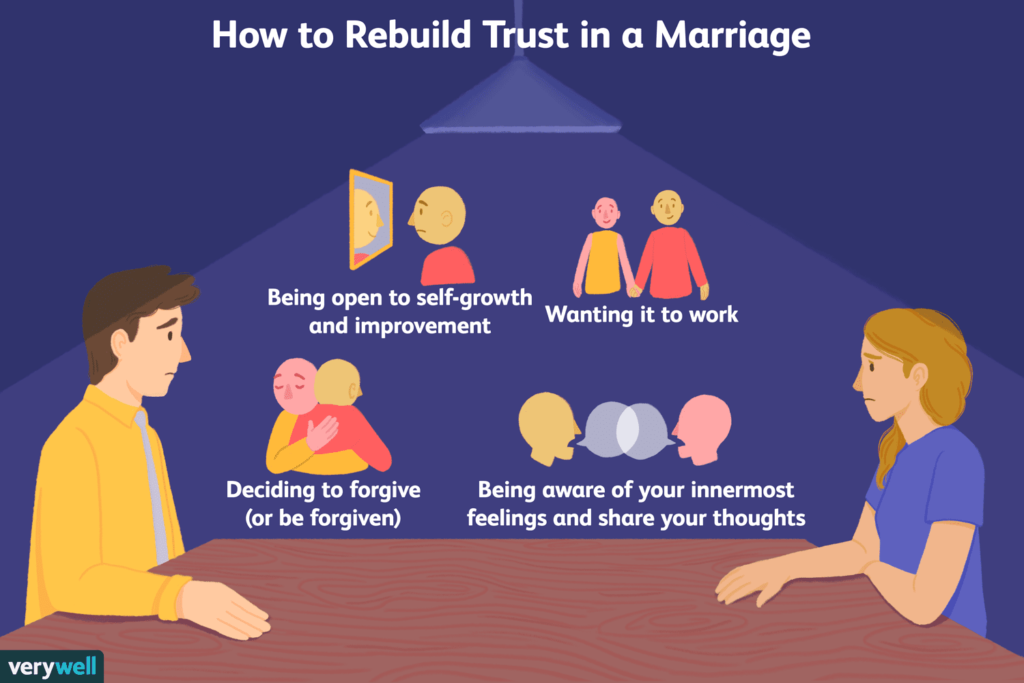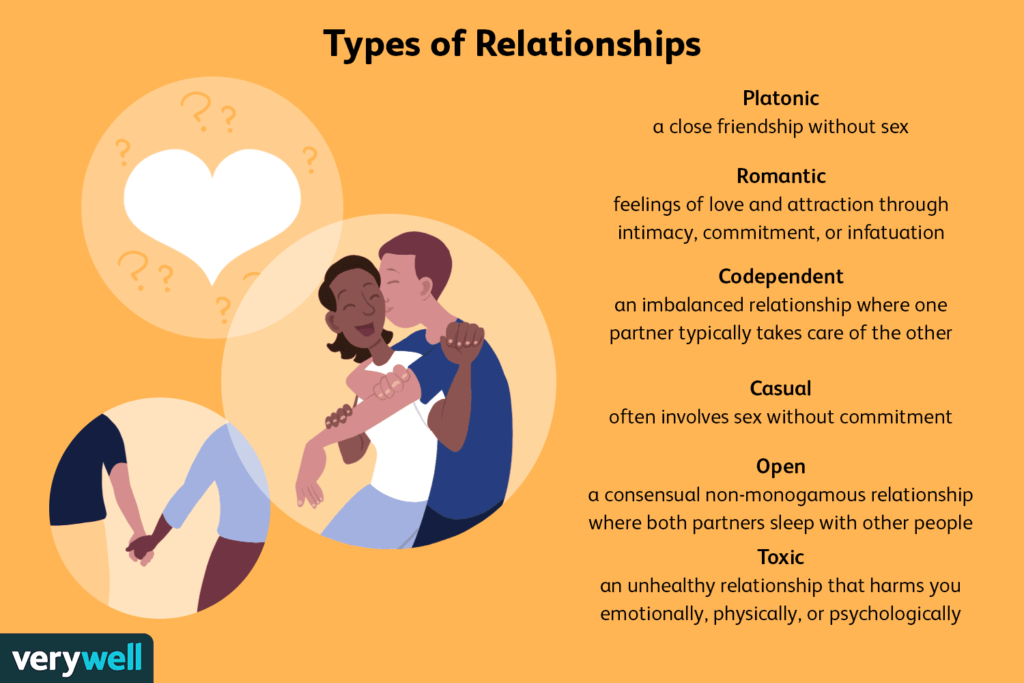Trust is the foundation of any healthy relationship.
Whether you’re in a romantic partnership, friendship, or even a professional connection, trust is the cornerstone that ensures longevity, harmony, and mutual respect.
Building and maintaining trust requires patience, consistency, and effort from both parties.
In this blog post, we’ll explore the top 10 ways to build trust in a relationship.
Top 10 Ways to Bring More Fun into Your Relationship

Table of Contents:
- Communicate Openly and Honestly
- Be Reliable and Keep Your Promises
- Show Empathy and Understanding
- Give Space and Respect Boundaries
- Practice Transparency and Openness
- Be Supportive During Difficult Times
- Work on Self-Improvement and Personal Growth
- Learn to Forgive and Let Go of Grudges
- Demonstrate Commitment and Loyalty
- Be Patient and Consistent
- Frequently Asked Questions (FAQs)
- Conclusion
1. Communicate Openly and Honestly
Effective communication is at the heart of building trust in any relationship.
When you openly share your thoughts, feelings, and concerns, it fosters understanding and reduces misinterpretations.
Honest communication also creates an environment where both partners feel heard and valued.
- Be Clear and Direct: Avoid vagueness and be straightforward about your feelings or intentions.
- Practice Active Listening: Listen carefully when the other person speaks, showing that you value their words.
- Address Issues Promptly: Don’t let misunderstandings fester. Address issues as soon as they arise to prevent resentment.
Why It Matters:
When people in a relationship hide the truth or avoid difficult conversations, it creates a sense of insecurity. On the other hand, open communication leads to clarity and mutual trust.
Best 10 Proven Ways to Rekindle Romance in Your Relationship

2. Be Reliable and Keep Your Promises
Reliability is key to trust. If you repeatedly make promises but fail to keep them, trust will erode quickly. Being dependable and following through on commitments shows your partner that they can count on you.
- Set Realistic Expectations: Only promise what you know you can deliver.
- Be Consistent: Show up when you say you will and honor your word.
Why It Matters:
Being reliable is a clear sign of respect and consideration. It reassures the other person that they can trust you in both big and small matters.
3. Show Empathy and Understanding
Empathy is the ability to put yourself in someone else’s shoes and understand their emotions and needs. Showing empathy builds trust by demonstrating that you care about the other person’s well-being.
- Acknowledge Their Feelings: Instead of dismissing their emotions, validate and acknowledge them.
- Be Patient and Compassionate: Allow the other person to express themselves without judgment.
Why It Matters:
Empathy allows both partners to feel understood and supported. It fosters a deeper emotional connection, which is essential for building long-lasting trust.
Top 10 Myths About Relationships That Could Be Holding You Back

4. Give Space and Respect Boundaries
Trust thrives in an environment where both people feel free to express themselves without fear of judgment. Respecting each other’s personal space and boundaries is an important part of this process.
- Know When to Step Back: Recognize when your partner needs time alone or a break.
- Respect Personal Boundaries: Understand and honor physical, emotional, and mental limits.
Why It Matters:
When partners feel like they have the freedom to be themselves and their boundaries are respected, trust is naturally strengthened.
5. Practice Transparency and Openness
Transparency involves being open about your thoughts, actions, and intentions. It means not hiding anything from your partner, whether it’s about the past, present, or future.
- Share Your Thoughts Freely: Don’t keep secrets, even if they seem insignificant.
- Be Honest About Mistakes: Own up to errors and let your partner know when something went wrong.
Why It Matters:
Being transparent builds a foundation of trust because it shows that you have nothing to hide, fostering an environment of honesty and openness.
Top 10 Secrets to a Lasting Relationship

6. Be Supportive During Difficult Times
Trust deepens when you are there for each other during challenging times. Whether your partner is going through a tough period at work, facing personal struggles, or dealing with health issues, your support can go a long way.
- Offer Encouragement: Provide words of affirmation and show belief in their strength.
- Be Present: Sometimes, just being there in silence is more important than offering solutions.
Why It Matters:
Support in times of adversity demonstrates your reliability and commitment to the relationship, building trust through shared experiences.
7. Work on Self-Improvement and Personal Growth
Self-improvement is essential not only for individual well-being but also for strengthening a relationship. When you invest in your own growth, you become a better partner, which positively impacts the trust in the relationship.
- Pursue Your Goals: Take responsibility for your personal ambitions and strive to improve yourself.
- Learn from Mistakes: Show growth by learning from past mistakes and making positive changes.
Why It Matters:
A partner who is committed to their own personal growth is seen as more dependable and self-aware, which increases trust in the relationship.
Top 10 Ways to Create Emotional Intimacy with Your Partner

8. Learn to Forgive and Let Go of Grudges
Holding onto grudges or past mistakes can significantly damage trust. Forgiveness is an important skill in relationships, and learning to let go of past hurts is essential to building a strong foundation of trust.
- Let Go of Past Resentments: Don’t hold old mistakes over someone’s head.
- Forgive and Move Forward: Work through issues and learn to forgive to strengthen the bond.
Why It Matters:
Forgiveness frees both individuals from the weight of past mistakes, allowing the relationship to move forward in a healthy way. It’s a powerful tool for maintaining trust and emotional safety.
9. Demonstrate Commitment and Loyalty
Trust is built when both partners feel secure in the knowledge that their commitment is unwavering. Loyalty shows that you are invested in the relationship and that you are willing to put in the effort to make it work.
- Be Faithful and Dedicated: Show your partner that you are fully invested.
- Support Each Other’s Dreams: Be actively involved in helping each other achieve goals.
Why It Matters:
Commitment and loyalty reassure your partner that they are important to you, and this sense of security strengthens trust.
10. Be Patient and Consistent
Building trust takes time, and it requires patience. The more consistently you practice the above principles, the more trust will grow in the relationship.
However, trust is fragile and can be easily broken. Hence, it’s crucial to be patient and consistent in your actions.
- Be Steady in Your Actions: Trust grows when you show consistency in your behavior and decisions.
- Allow Time for Trust to Develop: Don’t rush or force trust. Let it build gradually.
Why It Matters:
Consistency ensures that your partner knows what to expect from you, while patience allows the relationship to evolve naturally and trust to solidify.
Top 10 Qualities of a Strong Relationship

Frequently Asked Questions (FAQs)
- How long does it take to build trust in a relationship?
Trust takes time to build. Depending on the individuals involved, it can take anywhere from months to years to establish a strong foundation of trust. - Can trust be rebuilt after it’s broken?
Yes, trust can be rebuilt, but it requires a lot of effort, open communication, and time. Both parties need to work together to restore the trust that was lost. - How do I know if my partner trusts me?
Signs of trust include openness, transparency, and emotional vulnerability. If your partner feels comfortable being themselves around you and is dependable, trust is likely present. - What should I do if I feel like my partner is losing trust in me?
Open up a conversation to understand the root cause. Be honest, listen, and work together to rebuild the trust. - Can a relationship survive without trust?
It’s difficult for a relationship to thrive without trust. Trust is essential for emotional intimacy and respect. Without it, the relationship may struggle to last. - Is it possible to trust again after betrayal?
While it’s challenging, it’s possible to trust again. It takes patience, clear communication, and sometimes, professional help like therapy to rebuild the bond. - What is the difference between trust and loyalty?
Trust is the belief that someone is honest and reliable, while loyalty refers to a strong commitment to someone, especially in times of need. - Should I trust my partner even if they’ve made mistakes?
It depends on the nature of the mistake. If your partner is genuinely sorry and has shown efforts to change, it’s possible to trust again. - How can I trust myself in a relationship?
Trusting yourself means being confident in your decisions and actions. Trusting your instincts and maintaining personal boundaries is crucial. - What if my partner has trust issues?
Patience and open communication are key. Encourage your partner to work through their trust issues, possibly with the help of a counselor.
Conclusion: Building Trust Takes Time, Effort, and Patience
Trust is not something that happens overnight. It is a gradual process that requires consistent effort, patience, and dedication from both parties.
By communicating openly, being reliable, and showing empathy, you can build a strong foundation of trust that will keep your relationship healthy and resilient. Always remember that trust is a two-way street, and both partners need to actively participate in nurturing it.